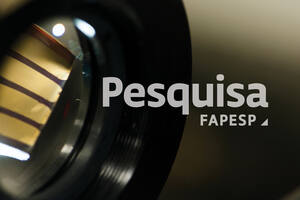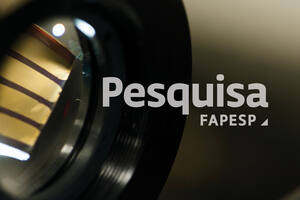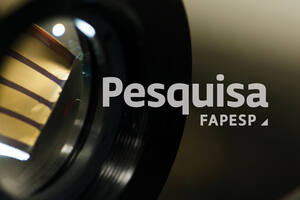Alexandra Ozorio de Almeida - Editor in Chief
Letter from the editor | 299
Take care
Surgeon Angelita Habr-Gama has dedicated her career to developing treatment strategies that aim to prevent rectal cancer patients from needing to have the organ removed. The results of research carried out by her group since the 1990s were published last month, showing that patients need not undergo a proctocolectomy if the tumor regresses completely after... View Article
Letter from the editor | 298

Encouraging prospects
In February of this year, when we were putting together the March issue, the first official record of SARS-CoV-2 infection in Brazil was confirmed. We had no idea what the future might bring. Our first article on the topic, “The Novel Coronavirus in Brazil,” reported on the disease’s arrival and described the other types of... View Article
Letter from the editor | 296

Legal subjects
The idea that children are individuals who deserve the same rights as adults, as well as other specific rights based on their inherent vulnerability, is a recent one. Previously seen as belonging to the family or the State, the notion that they deserve particular attention grew in popularity as we learned more about childhood development,... View Article
Letter from the Editor | 294

The plague and the pain
It is no surprise that pandemics have a significant impact on the population’s mental health. The fear of contagion and death, the immediate impact of an economic downturn, the stress of confinement, the burden of having to take on tasks that used to be shared by multiple people, and worrying about the future have all... View Article
Letter from the Editor | 293

The challenge of immunization
Less than four months after China notified the WHO that it had identified a cluster of pneumonia cases “of unknown cause,” potential vaccines for the novel coronavirus had already begun human testing. One of the first companies to start phase 1 clinical trials (in humans) was Chinese biopharmaceutical firm Sinovac Biotech, with which the Butantan... View Article
Letter from the Editor | 292

Crucial numbers
Little is known about viruses. Existing on the boundary between the living and the nonliving, they are found in all environments where there is life. Their effects on living beings can be beneficial, harmless, or capable of triggering devastating epidemics, such as Ebola, Zika, and now, SARS-CoV-2. Although the number of species is estimated in... View Article
Letter from the editor

Journalism during a pandemic
On March 20, the Pesquisa FAPESP offices closed and the team began working remotely. The April issue was completed in the midst of a rush to establish new working processes involving videoconferences, content-sharing platforms, and cloud storage. The May edition, meanwhile, was planned and executed from a distance, with only the journal’s photographer, Léo Ramos... View Article
Letter from the editor

A challenge for science
In May 1919, when the H1N1 pandemic known as the Spanish flu was slowing down, the journal Science published an article titled “The Lessons of the Pandemic.” In the article, American sanitation engineer and epidemiologist George A. Soper wrote: “The most astonishing thing about the pandemic was the complete mystery which surrounded it. Nobody seemed... View Article
Editorial

Women and Science
Modern science and its remarkable advances are closely associated with the ideas and research of men. Although this perception is not entirely accurate, it is also not incorrect. Like all human activity, science is a part of our current social structure, which is undoubtedly based on a male perspective. Londa Schiebinger, a professor of the... View Article
LETTER FROM THE EDITOR

Pesquisa Fapesp, 20 years
n 1963, a report by the Royal Society on the emigration of scientists sparked a public debate over so-called brain drain. Half a century later, international mobility among scientists is still an object of debate fueled by reports and studies. Initially restricted to people with a background in science and technology, the term currently covers... View Article
Letter from the editor | 286

Evangelicalism and politics
In 1872, the year of the first Brazilian census, almost the entire population of the country defined themselves as Catholic (99.7%). One hundred years later, the proportion had changed, but only slightly, to 91.8% in 1970. Since then, official statistics show, the decline has accelerated: in 1991, the total was 83.3%, and in 2010 it... View Article
Letter from the editor | 284

Journalism for science
In October 1999, the Notícias FAPESP newsletter became the Pesquisa FAPESP journal, expanding the mission for scientific dissemination begun four years earlier by the foundation from which the publication gets its name. Two decades later, the need and desire to inform the public about science produced in Brazil and in the state of São Paulo... View Article
Letter from the editor

Fortune and chance
Science evolves in a nonlinear manner. Subject to mishaps and chance, its path is much more lively and interesting than one might presume. Frequently, there is a good story behind important discoveries. One of these stories happened one hundred years ago and had Brazil as its stage. In 1919, Albert Einstein was not yet the... View Article
Letter from the editor | 283

Brains on the move
In 1963, a report on the emigration of scientists by the British scientific academy The Royal Society triggered what would come to be known as the brain drain debate. The origin of the term is attributed to then Minister of Science Lord Hailsham, who accused the USA of “parasitizing British brains.” Half a century later,... View Article
Letter from the editor | 282

Technology Purchase
Five years ago, the Brazilian government signed a purchasing contract for a batch of military jets from Swedish company Saab. This month, the first model of the new generation Gripen E fighter is scheduled to take off from the city of Linköping, Sweden, to begin its flight test campaign, the last stage before delivery in... View Article
Letter from the editor | 281

Too much plastic
Versatility is one of the many useful characteristics of plastic, which can be used in a range of applications in place of glass, wood, paper, metal, and natural fabrics, making it ubiquitous in modern society. Global plastic production was 2 million tons in 1950, and reached around 400 million tons in 2016. It is the... View Article
Letter from the editor | 280

The horizons of science
Man’s arrival on the Moon captured the public imagination better than any other scientific or technological achievement in the modern era. The feat seemed so unattainable that, to this day, conspiracy theories abound that the entire event was faked by the US government in the midst of a space race against the Soviet Union. Believe... View Article
Letter from the editor | 279

Brazilian paleontology on the rise
Argentina and Brazil are home to some of the oldest dinosaur fossils ever discovered. With a long history in paleontology, Argentina has thoroughly explored a geological layer in the provinces of San Juan and La Rioja that dates to the first stage of the Upper Triassic period (between 237 million and 227 million years ago),... View Article
Letter from the editor

Brains and births
The Biobank brain collection is a direct beneficiary of the University of São Paulo’s link with the city’s postmortem investigation service. The collection, which includes over 3,000 specimens donated by relatives of people subject to an autopsy, is a valuable contribution to research on aging, enabling advances in fields such as Alzheimer’s disease. Psychiatric disorders... View Article
Letter from the editor | 276

Knowledge for all
The journal Philosophical Transactions of the Royal Society, published by the British Academy of Sciences, is the oldest scientific journal in the world. It was founded in 1665 and sold at 1 shilling per copy with the aim of presenting an overview of new discoveries in natural philosophy. Started as a personal project by the... View Article
Letter from the Editor | 275

From neural networks to artificial intelligence
In the early 1990s, researchers from São Paulo submitted research proposals to FAPESP on artificial neural networks, a relatively unknown field at the time, in which computer systems simulate the human central nervous system. The objective is to develop algorithms that recognize patterns, allowing the machine to “learn.” Artificial intelligence (AI) first emerged in the... View Article
Letter from the editor | 273

Advances in Alzheimer’s research
One of the benefits of the University of São Paulo’s link with the city of São Paulo’s postmortem investigation service is the Biobank brain collection for studies into aging. The 3,000 specimens, donated by relatives of people who were subject to an autopsy after their death, are a highly valuable contribution to research, enabling advances... View Article
Letter from the Editor | 272

The role of museums
Images of the Brazilian National Museum in flames shocked the world. The 200-year-old institution, based in a former imperial palace, was home to plants and animals collected during nineteenth-century expeditions throughout Brazil, mummies and minerals gathered by the Portuguese royal family, prehistoric fossils and meteorites, and artifacts of extinct indigenous peoples. A collection of inestimable... View Article
Letter from the editor

Lighting the way
In certain fields, innovative scientific discoveries are increasingly reliant on large and often multinational facilities. These projects are frequently the subject of controversy within (and outside) the scientific community due to the high costs involved, particularly in developing countries, but supporters argue that such investments are needed to stimulate qualitative advances in science. In December... View Article
LETTER FROM THE EDITOR
Tracking primates against yellow fever
From December 2016 to August 2017, nearly 800 people contracted yellow fever in Brazil, of whom 262 died, according to the World Health Organization. In December 2017, deaths in the metropolitan region of São Paulo showed that the outbreak remained active and had reached urban areas. The Brazilian government adopted preventive vaccination campaigns targeted at... View Article
Letter from the editor | 271

Developments
It is not news that Brazil has a much higher number of cesarean sections than recommended by the WHO. In 2015, 1.6 million babies were born via cesarean in the country, which represents 55.5% of all births. A study by researchers from Pelotas in the state of Rio Grande do Sul shows that up to... View Article
letter from the editor | 270

Public health challenges
An article recently published in The New York Times (“Anti-Vaccine Activists Have Taken Vaccine Science Hostage,” August 5) warns that fear of being misinterpreted has caused vaccine researchers to avoid talking about potential negative aspects of their effectiveness and safety, even minimizing results that could indicate problems related to their use. Considering the recent rise... View Article
LETTER FROM THE EDITOR | 269

A new light for science
In certain fields, innovative scientific discoveries are increasingly reliant on large and often multinational facilities. These projects are frequently the subject of controversy within (and outside) the scientific community due to the high costs involved, but their supporters argue that such investments are needed to stimulate qualitative advances in science. The largest, most complex and... View Article
Letter from the editor | 268

Self-reflection for Embraer
The current dilemma faced by Brazilian aviation company Embraer is examined in a trio of reports that make up this issue’s cover article. Embraer was founded as a state-owned company in 1969, after a long period during which the country assimilated and developed essential skills at the former Center for Aerospace Technology (1946) and the... View Article
Letter from the editor | 267
Amazing Amazonia
“The abundance of scientific literature on the Amazon reflects the physical geography of the region: it is amazing, highly unusual, and exceedingly disjointed. Any who dare study it carefully will, at the end of that attempt, get but a small way past the threshold of a wonderful world.” This is the diagnosis made almost 110... View Article